
US Army backs ‘sleeping cap’ to help brains take out the trash
Rice engineers are developing a noninvasive device to understand how the brain disposes of metabolic waste during sleep.

US Army backs ‘sleeping cap’ to help brains take out the trash
Rice engineers are developing a noninvasive device to understand how the brain disposes of metabolic waste during sleep.

American Chemical Society honors Gustavo Scuseria
Rice University’s Gustavo Scuseria wins the American Chemical Society Award in Theoretical Chemistry.

NSF extends Physics of Living Systems network at Rice
The NSF awards nearly $3 million to the Center for Theoretical Biological Physics to continue its leadership role in the Physics of Living Systems graduate research network.
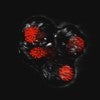
Sex and the symbiont: Can algae hookups help corals survive?
Scientists have discovered that symbiotic single-celled algae that live inside of and feed corals can reproduce not only by mitosis, but also sexually. Encouraging sex in these algae can accelerate their evolution to produce strains better able to help reefs cope with climate change.

Moody Foundation grants $100 million to Rice University
The Moody Foundation has granted Rice $100 million to build a transformative new student center designed by one of the world’s premiere architects and to create endowments supporting student opportunity and success, both as part of the center and in other areas of the university.

Rice lands grant to improve time-release drugs
HOUSTON – (Sept. 21, 2021) – Time-released drugs are about to get a geometry lesson, thanks to bioengineers at Rice University.

Grant backs effort to build useful bacterial colonies
Rice scientists have won a grant to advance the development of custom-designed microbial colonies for a variety of applications.
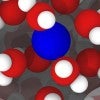
Modern simulations could improve MRIs
Rice University engineers improve simulations that analyze gadolinium-based contrast agents used in clinical magnetic resonance imaging. More efficient simulations could help make better compounds for imaging technologies.
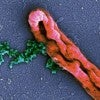
For some peptides, killing bacteria an inside job
Rice scientists study the dynamics of the immune system’s antimicrobial peptides, which attack and eliminate harmful bacteria. They find peptides that invade bacteria and do their damage from the inside are underrated.
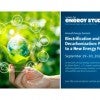
Baker Institute and Baker Botts’ Annual Energy Summit to examine global energy transition
HOUSTON – (Sept. 15, 2021) – The 2021 Annual Energy Summit at Rice University’s Baker Institute for Public Policy will explore the critical issues affecting global energy markets, oil and gas, electricity, renewables and the environment in a virtual conference Sept. 29-30.

Rice U. expert available to discuss cryptocurrency taxes
HOUSTON – (Sept. 13, 2021) – Cryptocurrency — an estimated $2 trillion market — has created an estimated $1 trillion tax gap and become too big to avoid regulatory oversight, according to a new blog post from an expert at Rice University's Baker Institute for Public Policy.
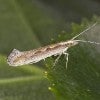
Crop-eating moths will flourish as climate warms
Climate change in this century will allow one of the world's costliest agricultural pests, the diamondback moth, to both thrive year-round and rapidly evolve resistance to pesticides in large parts of the United States, Europe and China where it previously died each winter, according to a study by U.S. and Chinese researchers.